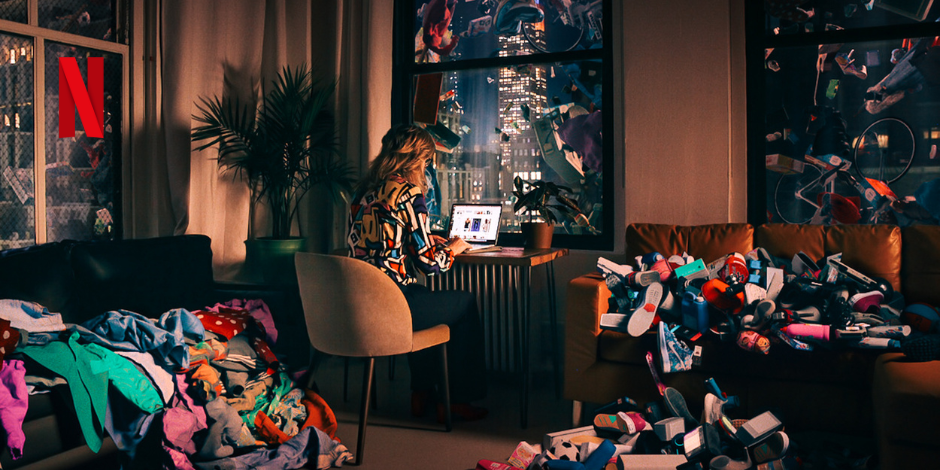Sustainability is back in the news with a vengeance as the new Netflix documentary “Buy Now!” indicts brands over dodgy tactics and waste
After nearly three decades of experience in the retail industry, there isn’t much about the questionable practices of some retail brands and merchandisers that catches me off guard. But the makers of a new Netflix documentary have managed to package the global scope and impact of overproduction and consumption in a way that even I found profoundly disturbing.
Buy Now! The Shopping Conspiracy should be required viewing for every corporate executive in retail, especially those in the apparel and technology sectors, because consumers are paying attention. In the middle of the holiday consumption season, the film shared Netflix’s top ten US list for the week ended November 24 alongside seasonal titles like “The Merry Gentlemen,” and “Meet Me Next Christmas.”
That consumers care about whether the brands they shop are behaving responsibly has been well-established. Since the pandemic began, surveys have consistently found that environment- and employee-friendly practices are becoming top concerns.
As we noted here in 2021 (“Gen Z Is Emerging as the Sustainability Generation”), this is especially true among younger consumers. A survey earlier this year by Blue Yonder, a supply chain software company, found that Millennials have caught up to Gen Zers and are now about equally concerned.
But “Buy Now!”—which presents itself tongue-in-cheek as a guide to success—is most effective at challenging some of the ideas consumers have about what counts as sustainability, and at exposing some of the tricks of the trade. Electric delivery trucks and paper packaging are more sustainable, but in the grand scheme of things they look like window-dressing compared to the devastation caused by overproduction.
In a segment of the film entitled “Waste More,” we learn that to sell more electronic devices some brands have made their products harder or impossible to repair by glueing, instead of screwing, the cases shut. Instead of replacing worn out batteries, every day some 13 million cellphones end up in the trash, along with an unknown number of laptops and other devices.
Then, halfway around the world in South Asia, we see impoverished workers sit in hellish trash yards heating recovered circuit boards over crude coal stoves to melt off valuable metals, in the process exposing themselves to all kinds of toxic fumes. “Managed correctly,” a female AI voiceover advises,” consumer waste can equal profits for your business.”
Another segment entitled “Lie More” reveals that product labels listing ingredients and sources are often misleading or just not true. Under the heading “Control More”: “Conceal the harm you cause.”
Apparel companies that claim they recycle unsold or used goods actually pay services to bundle and ship overproduced goods to nations like Ghana where, instead, everything ends up in landfills along the coast and is washed by rains into the ocean, clogging beaches and suffocating wildlife.
Meanwhile, consumers are lured into buying more with products designed to wear out faster. In an interview with Time.com, director Nic Stacey said a clothing manufacturer in Hong Kong reported that the company used to test garments for durability by washing them 50 times, but they don’t do that any more. In interviews, former employees of major brands said their jobs depended solely on selling more goods.
No one can dispute the notion that selling more is a goal of every business. In the retail trade, however, customer satisfaction, trust, and loyalty are essential to a sustainable business. “Buy Now” is a wake-up call that the folks who run consumer-facing companies ignore at the enormous risk of being caught out. A stained reputation with up-and-coming generations of consumers is much harder to fix than it is to anticipate and avoid.
Subscription Required.














